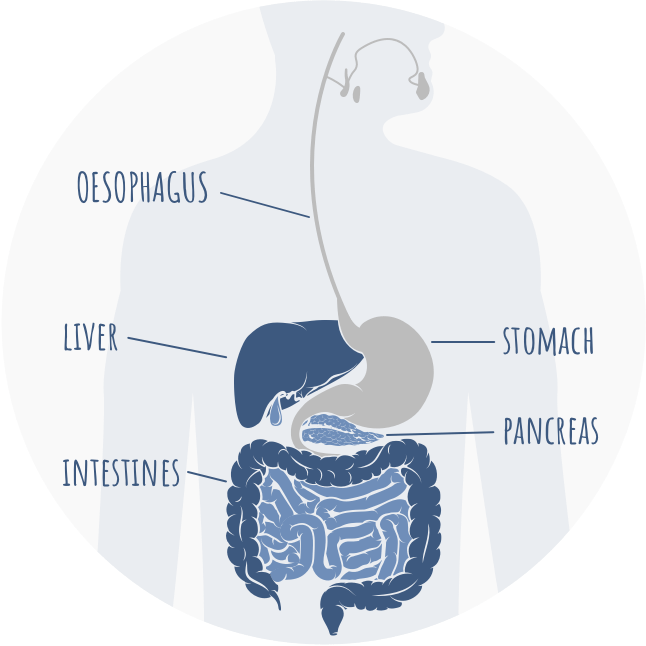
what to look out for
Pancreatic cancer is a type of cancer that affects your pancreas, a gland near your liver that is part of the digestive system.
In the early stages, a tumour in the pancreas doesn’t usually cause any symptoms, which can make it difficult to diagnose. Symptoms can vary depending on exactly where the tumour is within the pancreas. Sometimes symptoms are very vague things like a loss of appetite.
Signs and symptoms
Many of the symptoms are similar to other conditions so they don’t necessarily mean you have pancreatic cancer. However, it’s important to visit your doctor if you have any of the symptoms below.
- Jaundice – the most obvious sign is that your skin and whites of your eyes look yellow.
- Pain in your stomach or back that may come and go at first and is often worse when you lie down or after you’ve eaten.
- You’ve recently lost weight without trying.
- You have regular nausea and vomiting that lasts for more than 2 weeks.
- Your urine turns dark yellow or orange or your poo is pale-coloured.
A specialists view
Like most cancers, pancreatic cancer can often be cured if identified and treated early. Unfortunately to date there is no effective screening test for pancreatic cancer. The symptoms of pancreatic cancer can be vague and often require a CT scan for diagnosis. There are also many different types of pancreatic tumours, and the treatment and outlook following treatment can vary significantly.
Classical symptoms of jaundice, weight loss and abdominal or back pain after eating are usually easy to recognise and result in referral to hospital. However, as the early symptoms associated with pancreatic cancer can mimic other conditions, if they are recent and do not respond to initial standard treatments, your GP may well ask for more in-depth investigations, usually with a CT scan.
I would encourage patients with a significant change in symptoms from their norm, particularly in patients with unexplained weight-loss, new onset diabetes, treatment resistance, abdominal pain or a change in bowel habit, to discuss their concerns with their GP who can assess whether they feel referral for early scanning is required.

Ross Carter, Consultant Pancreatic Surgeon, Glasgow Royal Infirmary
Getting Checked – what’s involved?
Some people put off going to see their GP because they think they’ll be wasting their doctor's time. But if you’ve noticed any potential symptoms or unusual changes in your health and you’re at all worried, they’ll want to know.
Your doctor will want to build up a picture of what's going on. Here’s what you can expect at your appointment:
- You’ll be asked about your symptoms - including what they are, when you get them and whether anything you do makes them better or worse.
- Your doctor will also ask about your general health and any other medical conditions you may have.
- Your doctor will look at your skin and eyes to check for signs of jaundice.
- They may ask you to lie down for a physical examination to check if your abdomen is tender, or if they can feel a lump or if your liver feels enlarged.
- They might ask you to have blood tests and give a urine sample.
After your examination, your doctor may need to refer you to hospital for tests or to see a specialist.
Facts
- Pancreatic cancer is the 12th most common cancer in Scotland, but the 6th most common cause of cancer death.
- Most cases of pancreatic cancer occur in people over 50 years old.
- Around 800 people a year are diagnosed with pancreatic cancer in Scotland.
- 1.2% of people in Scotland will develop pancreatic cancer at some point in their lifetime.



